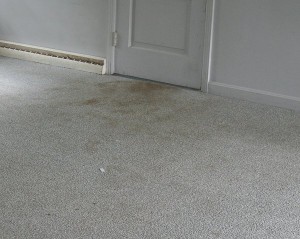Posted by Teresa on April 2, 2010 under Landlord Paperwork and Forms, Landlord Tenant Lawsuits, Tenant Screening & Background Checks | 
 Our last post contained a warning to landlords that what you say can come back to haunt you. In other every day activities, like accepting or rejecting new tenants, landlords must also take care to know and follow all applicable laws—because it protects you and your business from liability.
Our last post contained a warning to landlords that what you say can come back to haunt you. In other every day activities, like accepting or rejecting new tenants, landlords must also take care to know and follow all applicable laws—because it protects you and your business from liability.
Take discrimination. The Fair Housing Act is very clear on what constitutes discrimination: denying housing to an applicant based on race, gender, family status, country of origin, religion, age, sexual orientation, or disability. Still, depending on how a rejection is handled, there is always a chance that a discrimination claim could be filed by a rejected tenant.
How can landlords avoid such claims? First, make absolutely sure that you have a rock-solid reason for the rejection—and back it up with paperwork. Second, communicate the reason to the applicant. Don’t just say, “I found a better tenant,” or “I rejected your application.” The tenant could make up his own reasons for the rejection, including his race or religion.
Establish your minimum standards for approving tenant applications, and apply them to every single applicant. Treating everyone equally is a cornerstone of good landlord practices. Accept the first qualified applicant for a rental unit, after applying your standards to each interested party.
Full disclosure to all applicants up front is a good idea. Your lease application should convey your standards, as in the following examples:
- That each adult who will live in the rental unit must fill out an application and be approved.
- That a minimum income level is required to rent the unit.
- Employment history will be checked, and a minimum of six months at the applicant’s employer is required.
- That previous rental history will be taken into consideration, including timely rent payments, keeping property in good condition, and fulfillment of previous leases.
- That a tenant credit check and criminal background screening will be conducted on all applicants.
If you have additional requirements, add them to the list. And of course, your application should state that you do not deny the right to rent or lease property based on race, gender, family status, country of origin, religion, age, sexual orientation, or disability.
With this information up front, applicants will know what basis they can be rejected on. When you do reject a tenant applicant, be sure to explain your reasons in writing, and supply a copy of the credit report, as required by law.
Posted by Teresa on March 27, 2010 under Landlord Tenant Lawsuits, Landlord Tips | 
 Learning by others’ mistakes is a classic move. So read on for a few errors landlords can avoid—just because others have already made them.
Learning by others’ mistakes is a classic move. So read on for a few errors landlords can avoid—just because others have already made them.
Security deposits: Seems like security deposit issues are a top-5 cause of disputes between landlords and tenants. The problem can often be traced to miscommunications and unspoken expectations. Tenants sometimes assume they will receive 100% of their deposit back. It’s not their fault if they don’t understand how it works—it’s your job to fully explain the process, and what they stand to lose if they damage or otherwise alter the condition of the rental unit after they move in.
Have new tenants sign a statement that they have reviewed and understand your security deposit policy, move-in and move-out inspection lists, and then follow up with a thorough initial walk-through of the rental unit. Take photos and have tenants initial the condition of each item on the list. When they are ready to move out, schedule another walk-through with the tenant, establish damages and take more photos.
Failure to document, document, document. Keep pristine records—you never know when you’ll need them. Each tenant’s application, background screening and credit check report, lease documents and correspondence should be kept on file until three years after the end of the lease. Keep notes of emails and notes conversations, too (aside from the “nice day, huh?” conversations). Just keeping good records shows that you’re serious about your business—and someday, if you find yourself in front of a judge over a landlord/tenant dispute, it could work in your favor. It certainly can’t hurt!
Unintentional discrimination: Being discriminatory is not always a planned situation. Some landlords may mean well when asking a disabled tenant applicant about their wheelchair or asking if a 2 potential tenants plan to have children—but those questions themselves can be considered illegal. By avoiding personal questions of applicants, you could be avoiding possible legal trouble.
Not treating all tenants equally: Not only is it easier to be consistent in how you deal with tenants, it can also keep you safe legally. Don’t allow Tenant A to pay rent four days late when you never allow Tenant B a single day of leeway. Don’t enforce your “no smoking” rule for one tenant and not the others. Don’t fix a water drip immediately in the apartment of the tenant you like to talk to, but make an “unstable” tenant wait a week for a repair. Be fair and enforce all rules the same way to all your tenants. It’s easier to explain to a tenant that you’re sorry, but you have to apply the rules equally—and it can help you avoid a fair housing complaint, and a call to your lawyer!
Posted by Teresa on January 25, 2010 under Fair Housing Act, Landlord Tenant Lawsuits, Tenant Screening & Background Checks | 
Question 1 is about pet policies. Let’s say a landlord has five rental units. The tenants in four of them are neat and clean. The fifth tenants are not. They leave trash around their unit, and during inspections the landlord wonders if they ever clean the place. If a “neat and clean” tenant wants to adopt a dog, and a tenant number five also want to adopt a dog, is it discriminatory to approve Mr. Clean’s request and turn down the other tenant?
Pet policies have nothing to do with the Fair Housing Act. The only tenants who are protected regarding pets are those who fall under the protection of the Americans with Disabilities Act (ADA). A service animal must be allowed, regardless of your pet policies. All other pets are completely at your discretion.
Question 2 is regarding appearance. A landlord has two applicants for the same apartment. The first arrives in a clean, well-maintained late-model car. She is nicely dressed, and wears expensive-looking jewelry. The second arrives on a bicycle, wearing baggy jeans, a baseball hat turned backwards, and a torn t-shirt. Is it discriminatory to decline the second prospective tenant’s application without going any further?
Yes. Landlords may not discriminate on the basis of appearance. Smart landlords are “blind” to it, using solid tenant background screening as the decision maker. In this case, the first applicant could be way overextended on her credit, have a bankruptcy in her credit history, and owe her previous landlord a few months’ rent. The second could have bicycled straight from work, where he is well-respected, earns a good salary, and has solid credit. Appearances can be deceiving.
Question 3 is regarding advertising. Landlord Jane wants to pre-screen tenants by describing her expectations in the “for rent” ads she places in the paper. Her ad reads as follows: “1BR 1BA apartment, clean building, safe neighborhood near church. No pets, no kids, no smokers, no drinkers, no bums. Background and credit checks. Ref req’d.” Is Jane’s ad discriminatory?
Could be. Describing the rental unit as “near church” could be interpreted to mean she desires tenants of that church’s denomination. “No kids” can be problematic. You cannot discriminate against people with children, although a one-bedroom apartment could be considered too small for more than one person. Parents or a parent and infant in most states are allowed to rent a one-bedroom apartment. Check your local and state laws. Landlords can enforce a “no smoking” rule, and rules regarding alcohol consumption in common areas, but not a general “no drinking” or “no bums” rule. Jane’s definition of a “bum” is most probably discriminatory.
Remember, landlords must be very familiar with the Fair Housing Act, which bars discrimination against persons based on race, color, national origin, religion, sex, familial status (including children under the age of 18 living with parents or legal custodians), pregnant women, and people securing custody of children under the age of 18), and handicap (disability). Treating all of your tenants fairly and consistently is a smart way to avoid charges of discrimination.
 Question 1 is about pet policies. Let’s say a landlord has five rental units. The tenants in four of them are neat and clean. The fifth tenants are not. They leave trash around their unit, and during inspections the landlord wonders if they ever clean the place. If both a “neat and clean” tenant and tenant number five want to adopt a dog, is it discriminatory to approve Mr. Clean’s request and turn down the other tenant?
Question 1 is about pet policies. Let’s say a landlord has five rental units. The tenants in four of them are neat and clean. The fifth tenants are not. They leave trash around their unit, and during inspections the landlord wonders if they ever clean the place. If both a “neat and clean” tenant and tenant number five want to adopt a dog, is it discriminatory to approve Mr. Clean’s request and turn down the other tenant?
Discrimination is defined by the Fair Housing Act (FHA). Pet policies have nothing to do with the FHA. The only tenants who are protected regarding pets are those who fall under the protection of the Americans with Disabilities Act (ADA). A service animal must be allowed, regardless of your pet policies. All other pets are completely at your discretion.
Question 2 is regarding appearance. A landlord has two applicants for the same apartment. The first arrives in a clean, well-maintained late-model car. She is nicely dressed, and wears expensive-looking jewelry. The second arrives on a bicycle, wearing baggy jeans, a baseball hat turned backwards, and a torn t-shirt. Is it discriminatory to decline the second prospective tenant’s application without going any further?
Yes. Landlords may not discriminate on the basis of appearance. Smart landlords are blind to appearance, using solid tenant background screening as the decision maker. In this case, the first applicant could be way overextended on her credit, have a bankruptcy in her credit history, and owe her previous landlord a few months’ rent. The second could have bicycled straight from work, where he is well-respected, earns a good salary, and has solid credit. Appearances can be deceiving.
Question 3 is regarding advertising. Landlord Jane wants to pre-screen tenants by describing her expectations in the “for rent” ads she places in the paper. Her ad reads as follows: “1BR 1BA apartment, clean building, safe neighborhood near church. No pets, no kids, no smokers, no drinkers, no bums. Background and credit checks. Ref req’d.” Is Jane’s ad discriminatory?
Could be. Describing the rental unit as “near church” could be interpreted to mean she desires tenants of that church’s denomination. “No kids” can be problematic. You cannot discriminate against people with children, although a one-bedroom apartment could be considered too small for more than one person. Parents or a parent and infant in most states are allowed to share a one-bedroom dwelling. Check your local and state laws. Landlords can prohibit smoking in rental units and alcohol consumption in common areas, but not a general “no drinking” or “no bums” rule. Jane’s definition of a “bum” is most probably discriminatory.
Remember, landlords must be very familiar with the Fair Housing Act, which bars discrimination against persons based on race, color, national origin, religion, sex, familial status (including children under the age of 18 living with parents or legal custodians), pregnant women, and people securing custody of children under the age of 18), and handicap (disability). Treating all of your tenants fairly and consistently is a smart way to avoid charges of discrimination.
Posted by Teresa on January 5, 2010 under Landlord and Tenant FAQs, Landlord Tenant Lawsuits | 
 Where are landlords required to place security deposit funds in FDIC-insured institutions? Are you allowed to earn interest on your tenant’s security deposit, or must you turn interest over to the tenant at the end of the lease? How long are you legally allowed to hold the deposit after your tenant moves out?
Where are landlords required to place security deposit funds in FDIC-insured institutions? Are you allowed to earn interest on your tenant’s security deposit, or must you turn interest over to the tenant at the end of the lease? How long are you legally allowed to hold the deposit after your tenant moves out?
Every state has its own laws regarding how landlords handle security deposits. As a rental property owner, you must be familiar with your state and local regulations.
Here are some general guidelines that can help keep you on the up-and-up in most states. Dealing with your tenants as fairly, openly, and honestly as possible is the first step to keeping security deposit headaches to a minimum.
Interest: In many states, landlords with a minimum number of units are required to place security deposits in interest-bearing savings accounts. Some require separate accounts for each tenant; others allow one account, but no comingling of the landlord’s own funds. If you reside in one of these states, you have the choice of paying the interest at the end of the lease, or for long-term tenants, paying the interest once or twice a year. With interest rates currently low, the total interest earned is not much. We know a landlord who gives his tenants their interest checks each year in December—just in time for the holidays.
Rent vs. Deposit: Do not confuse the two, nor allow your tenants to do so. Rent is rent. The security deposit is meant to cover the property owner’s expenses if the tenant fails to keep the property in good working order or to cover tenant damages. If a tenants gives notice and expects you to keep the security deposit as last month’s rent, you may have grounds for eviction. Clearing up the tenant’s misunderstanding is probably a simpler way to go, however. Tip: be sure to include clear language in your lease about the amount of the security deposit, when and under what circumstances the tenant will receive it after the lease ends, and that it may not be used in lieu of rent payment.
Deductions: A move-in inspection and checklist, compared with a move-out inspection and checklist, will likely dispel any conflicts over deductions for cleaning, repairs, and damages. Conduct the move-out inspection with your tenant. Point out items that must be replaced or repaired. Obtain their signature to prove they were present and agree to the list of damages. Then, be reasonable about costs—recover your expenses, but don’t gouge your tenants.
Time Limitations: Landlords must deal with security deposits in a timely manner after the tenant moves out. It’s not fair to drag the process on indefinitely, keeping the tenant’s money tied up. Do the right thing and deal with damages, send an accounting of what was deducted from the deposit, and include a check for the balance to your tenant as soon as possible. Besides, most states require landlords to supply an explanation within a certain number of days.
Second Chance: Times are tough for almost everyone. Why not be an exceptional landlord and help your good tenants keep more of their hard-earned money? After the move-out inspection, set up a second walk-through to give the tenant a chance to right the wrongs you point out. Most tenants are capable of performing minor repairs and giving the unit a good scrubbing. Clearly communicate your expectations and give the tenant a chance to meet them.
We recommend you also automatically screen all tenants as part of your application process. For more landlord resources, including forms and information on tenant screening, turn to E-Renter.com. .
Posted by Teresa on September 24, 2009 under Landlord Tenant Lawsuits, Landlord Tips | 

Keep tenants safe with proper deadbolt locks.
Nobody wants to receive a phone call like a landlord we know recently did: “I just slipped on some wet leaves and tore the ligaments in my knee.” Luckily, this landlord has plenty of insurance to cover just such an incident—but as everyone knows, making an insurance claim can lead to higher rates or even cancellation.
Landlords and property managers must do their due diligence when it comes to keeping tenants safe. Being prepared and performing a little hard work can go a long way to preventing problems that lead to injuries, lawsuits, and losses.
First, make sure your properties have sufficient locks on all the doors and windows. Deter criminals with good lighting, and keep shrubs away from windows. Make sure your tenants understand the importance of key control, and advise them in writing against venturing out alone—especially if the neighborhood is historically sketchy. Don’t rely on tenants to alert you to broken locks or burned-out lights. Do your own periodic inspections to stay on top of these issues that can cause a landlord to lose a lawsuit in a heartbeat.
Give each tenant an evacuation plan. Provide escape ladders if second-floor bedrooms can be cut off from exits in case of fire. Also, provide fire extinguishers in the kitchen and at least one other room.
Don’t require tenants to rake leaves or shovel snow. Either do it yourself, or hire professionals to take care of the grounds. Whether it’s from a pile of wet leaves or a slick patch of ice, tenants can be injured on your property if it’s not well maintained. There is no magic formula to prevent any and all injuries, but it still will benefit the landlord or property manager who does everything possible to keep the property safe. And, the courts see it as the owner’s responsibility, not the tenant’s.
Conduct safety inspections. You should keep your eyes peeled every time you enter your rental property, but be sure to also schedule periodic safety inspections. Look for problems with broken or rotted stair treads, wobbly railings on stairwells, porches, or decks, and windows that don’t operate properly. Make sure locks are easy to operate, and smoke and CO2 detectors are functioning. Trim broken tree limbs before they come down on a tenant’s head.
Finally, keep communicating with your tenants. Provide them with more information than you think they need—it could help you win a court case someday. Write up a list of safety tips, and firmly state your visitor and key policies in your lease. Alert tenants whenever maintenance or construction projects will be going on, and advise them to avoid the areas being worked on. And remember to check in with your tenants—ask if all their safety equipment is working properly, or if doors and windows are getting stuck. Keep communicating and you’ll find out what needs to be addressed much sooner—which could possibly prevent and injury for a tenant, and a lawsuit for you!
Remember, protect yourself and your property by
screening tenants prior to leasing. For more landlord resources, including forms and information on
tenant screening, turn to
E-Renter.com. You’ll know that you have the best possible tenants when you
prescreen tenants.
Posted by Teresa on August 10, 2009 under Landlord and Tenant FAQs, Landlord Tenant Lawsuits, Landlord Tips | 
 Landlord vs. tenant issues seem to occur in the same general areas. One item that landlords and tenants frequently clash over is flooring. Whether your rental unit floors are covered with carpeting, hardwood, or tile, you and your tenants will likely have issues with them at some point. We’ve put together some guidelines to help deal with damages or requests for replacement.
Landlord vs. tenant issues seem to occur in the same general areas. One item that landlords and tenants frequently clash over is flooring. Whether your rental unit floors are covered with carpeting, hardwood, or tile, you and your tenants will likely have issues with them at some point. We’ve put together some guidelines to help deal with damages or requests for replacement.
Determine the extent of the damage. Are you seeing normal wear and tear, minor damages, or major damages?
Normal means high-traffic areas are starting to show wear.
Minor damages include:
- Carpet indentations
- Minor scratches in wood floors
- Color fading
Major damages include:
- Stains
- Burns
- Carpet wrinkling
- Deep scratches in wood
- Gouges in laminate
- Chipped or broken tiles
- Carpet odors
Determine the cause of the damage. Keep in mind that some of the above issues may be a result of the quality of floor covering or the installation method—and may not be your tenants’ fault. Improper tile installation can lead to cracks. Poor quality carpet will wear quickly. Obviously, pet stains and odors, burns, or food stains that were not present at move-in are the responsibility of your tenant.
Can the damage be repaired? Most flooring can be, so you might be able to avoid the cost of replacement. Contact a local flooring contractor or installer to provide an estimate for repair. You can require your tenant to take care of the bill if they are at fault.
How old is the flooring? Carpet and laminate will wear out. If you have 20-year-old carpet in a rental unit, then obviously, it should be replaced. And, low-quality, inexpensive carpet won’t last even five years under heavy use. The more people and animals walking on it, the quicker it will wear out! You’ll attract a higher-quality tenant with newer flooring.
So what’s the best flooring to avoid landlord and tenant issues? Unfortunately, there is no “best” flooring choice when it comes to rental units. Many landlords we hear from prefer hardwood, such as oak. It’s tough and lasts for hundreds of years with proper care. In older homes, hardwood can be painted to reduce upkeep and hide signs of wear.
If you want to install carpet, use your best judgment. Keep price and quality in line with the level of rent you are charging. Spell out your tenants’ responsibilities when it comes to caring for the floors, and thoroughly document the floor’s condition at move in and again at move out. That way, if damages occurred during the tenant’s stay, you have proof enough to deduct the amount from the security deposit—or to charge them more to cover the difference.
For more landlord resources, including forms and information on
tenant screening, turn to
E-Renter.com. You’ll know that you have the best possible tenants when you
prescreen tenants.
Posted by Teresa on June 12, 2009 under Landlord Paperwork and Forms, Landlord Tenant Lawsuits | 
 Lead-based paint can be a real problem for owners of older properties. Although lead in paint was banned in 1978, it could still present in older rental units. The paint itself is not a health hazard until it cracks, peels, or turns to chalk with age. And sanding or scraping it releases lead dust, which is a serious health hazard, especially to young children.
Lead-based paint can be a real problem for owners of older properties. Although lead in paint was banned in 1978, it could still present in older rental units. The paint itself is not a health hazard until it cracks, peels, or turns to chalk with age. And sanding or scraping it releases lead dust, which is a serious health hazard, especially to young children.
As a rental property owner, you should be aware of lead paint dangers and required disclosures. Most states have lead hazard reduction laws in place; some require testing and careful maintenance.
The federal Residential Lead-Based Paint Hazard Reduction Act of 1992 covers dwellings built before lead paint was banned in 1978 and requires rental housing owners or their property managers to notify tenants that the property may have lead-based paint.
Under the federal law, property owners are not currently required to test for lead-based paint or to remove it; but you must disclose any known presence of lead-based paint and provide all tenants with copies of records pertaining to the presence of lead-based paint.
Landlords are also required to provide an information brochure prepared by the federal Environmental Protection Agency (EPA): “Protect Your Family from Lead in Your Home.” This brochure is available online or you can request printed brochures from the National Lead Information Clearinghouse at 800-424-5323.
Certain other dwellings are exempted from the federal law:
- Housing for the elderly or persons with disabilities (unless there are children under age 6 living in the house)
- Short-term (100 days or less) rentals
- Certain university housing
- Studio or efficiency units
- Housing that has been inspected and certified “lead free”
You can always contact the EPA or your local health or environmental agencies for information specific to your area. If you are advised your property is exempt, get verification in writing for your records.
Keep a copy of your tenant’s signed disclosure form for three years. You only need to make the disclosure once, even if the tenant renews an existing lease.
If a landlord fails to follow the federal regulations, and a tenant does not receive required EPA or approved state disclosures, the owner or property manager may be subject to serious fines and penalties. The EPA and HUD are enforcing these regulations, so follow the laws and minimize your risk!
Posted by Teresa on May 13, 2009 under Fair Housing Act, Landlord and Tenant FAQs, Landlord Tenant Lawsuits | 

If you are a landlord, reducing risk should be an ongoing part of your business. Nobody likes to think about lawsuits and liability insurance, but the facts are that rental property owners are sued every day. You cannot control every liability that comes with rental property ownership, but you can minimize risk with awareness and planning.
Smart landlords know that keeping their properties in good repair and prescreening tenants are two ways to reduce the liability of owning income property. But there are other areas you may not be aware of that could be putting you at risk. Protect yourself and your assets by controlling your actions in these areas.
Hiring workers: Both federal and state government entities actively search for employers who don’t properly document their employees. Landlords who hire workers fitting the description of “employee,” who then pay them in cash and do not withhold proper taxes, unemployment and insurance, are breaking the law.
Employers who pay “off the books” are subject to back taxes and penalties if they get caught—and the IRS and state agencies are definitely on the lookout for these folks. Your best bet is to hire contractors and repair people who are self-employed, with their own corporations. Keep their business cards and check out their form of ownership. Require proof of insurance, too.
Discrimination in renting: Federal laws make it illegal to discriminate when renting on the basis of race, color, religion, nationality, familial status, age, gender, and disabled status. Your local and state laws may protect additional groups. Even if you do not intend to discriminate, you must be aware of how the laws affect your advertising and rental procedures.
For example, you should avoid advertising your property as being close to a church, because you could be sending the message that you prefer churchgoing tenants. You cannot advertise that your property is “perfect for a nice family,” because you could be seen as discriminating against single people. Avoid asking personal questions as a rule. You cannot rent based on tenants’ marital status, whether or not they have children, or how they choose to worship—or not.
We have covered renting to persons with disabilities in this blog. But while most landlords know that a person in a wheelchair must be accommodated, keep in mind that it is discriminatory to ask about the disability. All disabilities—even those that are not obvious—are protected under the law. Knowing how you must comply and keeping good records are both vital to all landlords.
Improper legal documentation: It may be tempting to use real estate forms that you buy from an office supply store or borrow from a friend, but it’s in your best interests to cover yourself thoroughly before signing any legal documents. Sure, you can download forms from the internet, but have them reviewed by a real estate attorney before you start using them for your tenants.
Be sure to periodically update your forms, too. Outdated forms could put you at risk if new housing laws have been passed. Plus, you may be asking tenants to sign agreements that are unenforceable.
Respecting tenants’ rights to privacy: Landlords must avoid entering properties without proper notice. In most states, it is not okay to stop by unannounced to check on things or make repairs. It’s not worth it if this type of action results in a tenant being released from the rental agreement or is awarded damages.
Reducing your liability and staying out of court will definitely increase your bottom line! So, keep up with changing laws, stay informed, and always ask yourself if there is a better way to do things.
For more landlord resources, including everything you need to know about
tenant screening, turn to
E-Renter.com. You’ll know that you have the best possible tenants when you
prescreen tenants.
Posted by Teresa on March 18, 2009 under Eviction, Landlord Tenant Lawsuits | 

Courtesy of www.flickr.com/umjandoan
Eviction: the word itself sounds unpleasant, and it is—on both sides. Does any landlord begin the eviction process against a tenant unless it is absolutely necessary? It’s not likely that anyone actually enjoys the legalities, paperwork, court orders and stress that accompany this process.
The best way to prevent having to evict tenants is to do the work required up front to attract and retain the best tenants. A few examples are:
1. Keep your property in the best possible condition;
2. Keep communication open with your tenants;
3. Screen tenants prior to signing the rental agreement;
4. Put everything in writing.
Even when all seems to be going well, you could still experience a situation that cannot be tolerated; and eviction is the eventual result. Knowing what to do in this case can make it easier.
Eviction laws vary by state and even by locality; it is vital to follow them precisely. You may decide to consult an attorney or eviction service to assist you; if so, the web is a great resource to find these specialists.
There are basic rules to evict problem tenants, no matter where you live. First, a legal reason, such as violating the lease agreement, is required. Second, you must give the tenant notice. Each state has exacting procedures that define “proper notice.” Keep in mind that in some localities, you may not follow through on the eviction if you accept rent payments after giving notice. Third, you will have a legal proceeding before a judge. If the judge’s rule calls for eviction, there will be a notice of eviction from the court.
Now, the court may side with the tenant; if you decide to appeal the decision, be prepared for another lengthy and costly procedure. You will likely need legal representation for the appeals process. And, the tenants can appeal, as well—so a first-round victory doesn’t mean you’re completely off the hook.
Preparation is key: a solid rental agreement, along with evidence (such as photographs and communication logs) will be your best tools when facing the eviction process. It’s easier to stay organized from the beginning than to try to catch up when you’re facing a court date!
Next Post: Becoming a Landlord
Posted by Teresa on March 13, 2009 under Eviction, Landlord Tenant Lawsuits | 

The law protects tenants from evictions, rent increases, and other penalties a landlord might impose out of retaliation. Most often, this occurs after a tenant files a complaint or other action against the landlord. If you decide to evict a tenant, raise the rent, or terminate a lease, you must be prepared to prove it is not in retaliation for the tenant’s actions.
What is considered retaliatory action? If your tenant files a complaint through proper channels about your lack of maintenance or a code violation, you may not raise their rent, break their lease, or evict them. You may not threaten eviction or reduce services, either.
If you do decide to evict a tenant for legitimate reasons, such as severe property damage, non-payment or continual late payment of rent, or illegal activity, you must prove that your reason is legal. The law assumes a tenant who has filed a complaint and subsequently is evicted is being treated illegally. You cannot punish a tenant for exercising their rights under the law.
The reality is that once a tenant files a legal complaint, it becomes more difficult to later evict them, even with just cause. The best practice is to prevent such complaints with regular inspection schedules, proper maintenance, and good communication. In addition, prescreening tenants and checking references will be good clues as to their rental habits and history—before you enter a legal agreement to lease your property.
 Our last post contained a warning to landlords that what you say can come back to haunt you. In other every day activities, like accepting or rejecting new tenants, landlords must also take care to know and follow all applicable laws—because it protects you and your business from liability.
Our last post contained a warning to landlords that what you say can come back to haunt you. In other every day activities, like accepting or rejecting new tenants, landlords must also take care to know and follow all applicable laws—because it protects you and your business from liability.





 Lead-based paint
Lead-based paint 

